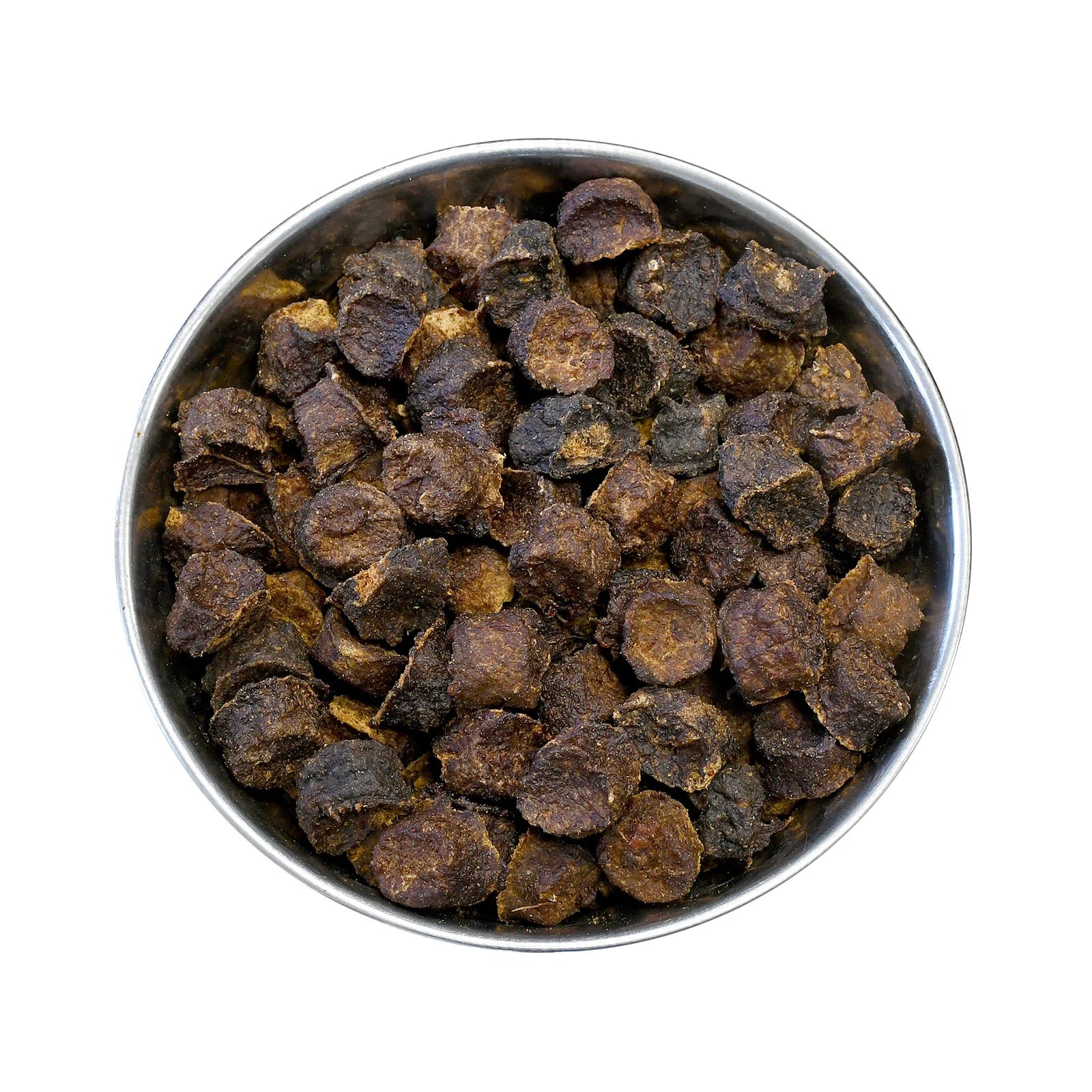Horse Hearts (20%)
A horse's heart consists primarily of muscle. The fat it contains serves as a flavor carrier, a source of energy, and supports the absorption of important vitamins. It also provides high-quality biotin and potassium.
Horse liver (20%)
Horse liver contains high amounts of vitamins A, B1, B2, B12, C, and D, as well as iron. Liver is relatively low in fat and high in protein, and is therefore generally well tolerated.
Parsnip (5%)
Parsnips contain high-quality fiber and vitamins. Their nutrients regulate digestion and can therefore have a positive effect on the immune system. In addition, parsnips provide high-quality carbohydrates and protein. Parsnips are especially suitable for dogs with allergies.
Carrots (4%)
In addition to their energy, fiber, and low calorie content, carrots are healthy because they are an excellent source of vitamins and minerals. Vitamin A and biotin are particularly worth mentioning. Carrots are rich in beta-carotene, which is converted into vitamin A in the body.
Peas (4%)
Peas contain many vitamins. In addition to beta-carotene, peas offer many B vitamins and also contain vitamin C. Peas also score points with minerals: magnesium, iron, calcium, and zinc make them a particularly healthy vegetable supplement.
Apple (2%)
Apples are suitable for a healthy diet because they contain many vitamins, minerals and trace elements such as potassium, calcium, B vitamins, vitamin C, vitamin E, folic acid, pectins and polyphenols.
Broccoli (1.5%)
Broccoli contains some vitamins in particularly high concentrations: vitamin C, vitamin K, and beta-carotene. Broccoli is also much better equipped in terms of minerals than many other vegetables. For example, broccoli provides significant amounts of calcium, iron, and copper.
Rosette (0.5%)
In addition to vitamin C, rosehips also contain many other ingredients that have a positive effect on health. These include: fruit acids, essential oils, pectin, tannins, silica, the antioxidants lycopene and flavonoids, the vitamins provitamin A, vitamins B1 and B2, as well as vitamin E, and the minerals zinc, copper, sodium, phosphorus, iron, calcium, and magnesium.
Alkaline (0.5%)
Algae lime consists of deposits of red algae. It primarily contains calcium carbonate, as well as magnesium carbonate and trace elements (boron, iodine, silica), and thus prevents mineral and trace element deficiencies. The high calcium content supports stable bones and teeth and compensates for excess phosphorus in meat feed, which can otherwise lead to kidney problems.
Blueberries (0.2%)
Blueberries are rich in vitamin C, fiber, and antioxidants. They also contain less fructose than other fruits, making them suitable for dogs with diabetes. They are packed with vitamins C, A, B, and E and contain a high proportion of minerals such as calcium, potassium, and phosphorus.
Brewer's yeast (0.2%)
Brewer's yeast contains many vitamins and minerals and is also a good source of protein. It also stimulates metabolism and helps maintain stable blood sugar levels.
Seaweed flour (0.1%)
Seaweed meal contains many minerals such as zinc and carotenoids, which support skin metabolism, coat pigmentation, nasal level, and paw pads. The amino acid lysine it contains optimizes food classification; cellulose and mannitol support digestion.


